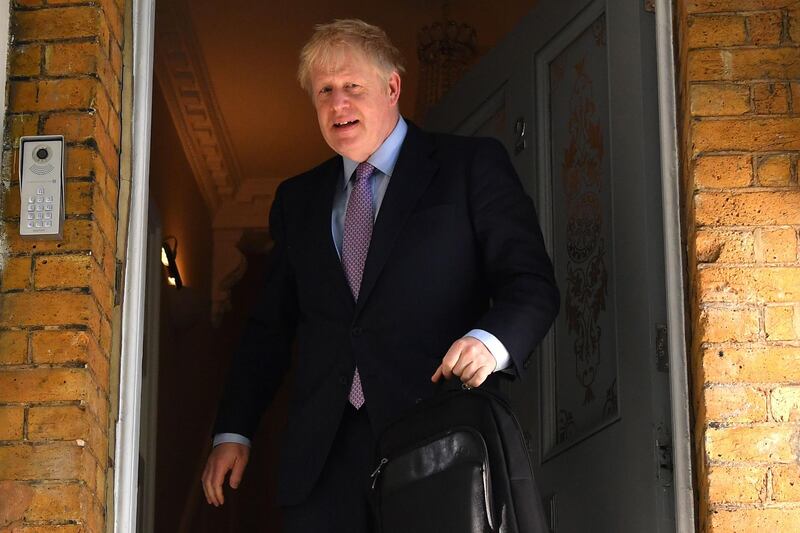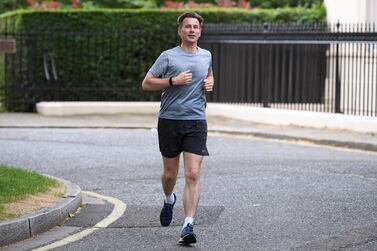Boris Johnson overwhelmingly won the second ballot to become the UK prime minister as he readied himself to face his rivals on TV.
Mr Johnson came first with 126 of the 313 votes from MPs of the ruling Conservative Party with Foreign Secretary Jeremy Hunt a distant second with 46.
Former Brexit secretary Dominic Raab came last and exited the contest with 30. Dark horse candidate Rory Stewart made it to the next round with 37 votes and now will get his wish to debate against Mr Johnson live on television.
The campaign took on an air of mystery yesterday when Mr Stewart was forced to answer questions over a rumoured past as a spy.
While former foreign secretary and Brexiteer Mr Johnson is the overwhelming favourite, fears he could be unsettled by Mr Stewart’s upstart campaign have flourished. Mr Stewart has threatened the front runner with an approach and line of questioning that could shatter his carefully cultivated insouciance.
Mr Stewart, a former soldier and diplomat, has propelled himself into public discourse by urging the public to meet him and challenge his ideas while Mr Johnson has been hidden away over concerns his gaffe-prone persona could damage his leadership bid.
Mr Johnson writes a weekly and well-paid column for The Daily Telegraph, the paper that ran the spy story citing anonymous sources. "Mystery of Stewart's past links with MI6" a front-page headline blared. Meanwhile The Times newspaper also led on Mr Stewart and his rivalry with another candidate Michael Gove.
If he did, he risked everything in the shadows defending our nation. If he didn’t, he risked everything in Iraq trying to build the peace. Whoever these Whitehall sources are need to seriously rethink their ethics. Trying to use @RoryStewartUK as political capital may risk others https://t.co/XmmU6MqQXJ
— Tom Tugendhat (@TomTugendhat) June 17, 2019
It is not the first time Mr Stewart has been accused of working for the intelligence service – and he formerly held junior roles at the UK’s foreign ministry and appointments in Iraq and Afghanistan – but the timing still ruffled some feathers.
He has always rejected the claims and told The Sun last week: "It's the Secret Intelligence Service, bound by the Official Secrets Act. So even if you found someone who was an intelligence officer, they wouldn't tell you they were an intelligence officer."
And thank you for all the support - we seem to have almost doubled our vote again...more to come...#walkon
— Rory Stewart (@RoryStewartUK) June 18, 2019
And Mr Stewart, who trekked through parts of Afghanistan and is heavily critical of Mr Johnson's push in a clean break from the European Union, has received support today with some saying The Telegraph's cover story had backfired.
Former army officer and chair of the foreign affairs select committee Tom Tugendhat warned that using Mr Stewart as “political capital” may “risk others.”
“If he did, he risked everything in the shadows defending our nation. If he didn’t, he risked everything in Iraq trying to build the peace. Whoever these Whitehall sources are need to seriously rethink their ethics,” he said on Twitter.
Defence minister Tobias Ellwood, another ex-military officer said The Telegraphs headline was “curious.”
“With no one in mind I stand by anyone who chooses to serve & defend our country – in uniform or otherwise. It is a patriotic, selfless and valiant cause. A duty not taken lightly that should be praised and respected – not least by conservatives,” he said on Twitter.
Critics of Mr Stewart question what is his approach to Brexit. The Remain voting MP has said Brexit must happen but has strongly rejected any talk of a no-deal withdrawal.








